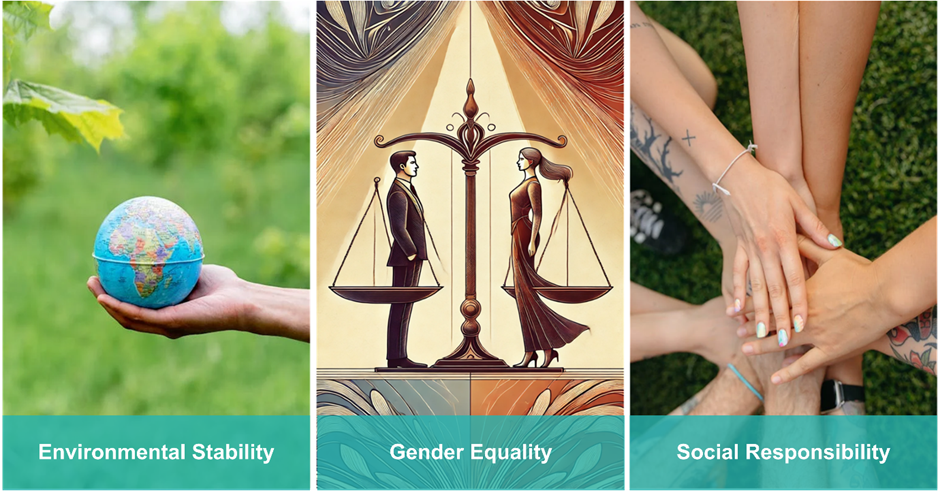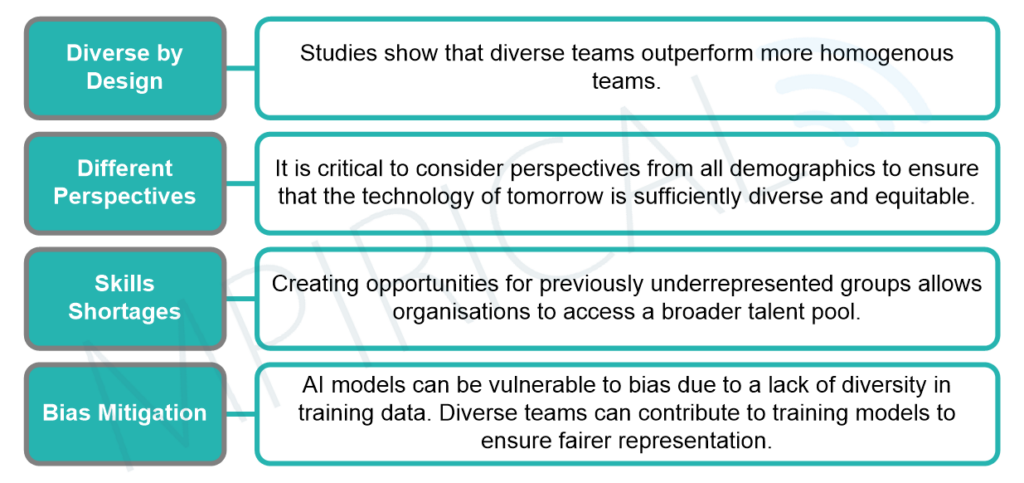
Digital DNA
Introduction
The technology landscape is shifting rapidly, driven by growing demands from customers and other stakeholders for sustainable, ethical practices and impactful technology use that can bring meaningful change. As we transition into a digital future, technology and telecom companies must reflect on their “digital DNA”—their culture, values, and the role they play in shaping a better world.

Tech and Telco industries must move beyond simply “innovation for innovation’s sake;” technologies such as AI have the potential to profoundly change society and so must be managed carefully with consideration of the wider impact beyond the technology itself.
Global challenges such as climate change and social inequality can be mitigated through the positive use of technology for good. Technology and communication industries can have tangible, positive impacts. This is not just about compelling organisations to behave differently; it is about bringing a profound shift in thinking to meet new expectations. Tech must be used responsibly, and companies that do not follow this principle are unlikely to succeed in a new future where this is a key focus for all.
Innovation for Sustainability
Companies can no longer afford to simply pay lip service to sustainability; those that have in the past have faced accusations of “greenwashing.” As we transition to a greener future, companies will need to embed sustainable practices at every layer of their business. We are seeing a push to reduce carbon footprints and drive down energy consumption in the tech and telco industries with energy-efficient network technologies, the use of renewable energy sources and innovative approaches in power and cooling for data centres.

Sustainability is a key responsibility in all industries as we move towards a greener future. With energy-efficient network technologies and data centres using renewables through smart technologies, there is a significant push to reduce carbon footprints without compromising operational efficiency. Companies now understand that blending innovation with ecological responsibility isn’t just about doing the right thing—it’s also smart business. For example, mobile service providers are rolling out energy-efficient 5G infrastructure that reduces the environmental impact while still delivering performance improvements over previous generations.
Smart cities are another area where innovation can be used to drive sustainability, through widespread deployment of IoT devices such as sensors and actuators, these cities are cutting energy use, reducing waste, and improving living conditions. This clearly demonstrates the potential for technology to be used to drive positive change.
Inclusion and Trust in a Changing Landscape
The telecom industry remains one of the least diverse sectors regarding gender, with just 3% of telecommunications engineers being female. This is an issue we cannot afford to ignore. Diversity is not just about fairness; it’s about business survival.
The best teams are diverse by design, research consistently shows that diverse teams outperform more homogenous ones. It is critical that when building teams, consideration is given to individuals with different perspectives and backgrounds—particularly those that have traditionally been underrepresented. This is essential to ensure that the technology of the future meets the needs of all.
With the rapid rise in the use of AI technologies in all areas of everyday life, trust and transparency are essential for maintaining public confidence. AI models must be transparent and explainable rather than “black boxes” controlled by a few influential organisations or countries. This is particularly essential where AI and other technologies have the potential for harm or misuse. Regulations are being developed to introduce oversight and guard rails around the use of AI for purposes such as law enforcement and social scoring.
Talent Management

As the landscape is changing, so are the challenges; data from PwC and Mpirical points to a consistent struggle: the telecoms sector is having difficulty attracting and retaining talent at the rate technology is advancing. The industry faces a global workforce “caught between today and tomorrow.” Innovation is rapid, but the skills needed to keep up aren’t always available. This challenge is compounded by an ageing workforce—60% of UK engineers are over 50 (and no doubt many will be looking forward to a well-earned retirement)—and an eroding talent pipeline at a time when demand for fibre and 5G is accelerating. Success in this fast-paced digital era will require a commitment to nurturing talent pipelines that support continuous learning.
A Future Built on Purpose
In summary, telco and tech companies should be embedding practices that improve sustainability, inclusivity and transparency into their “digital DNA.” We are in a unique position where we can drive the use of technology to address some of the key challenges of our age and build a better, more equitable world for all. The challenge for companies is how to embrace these new imperatives whilst still maintaining business goals. It is clear however that those that do not embrace this change are likely to fail.
